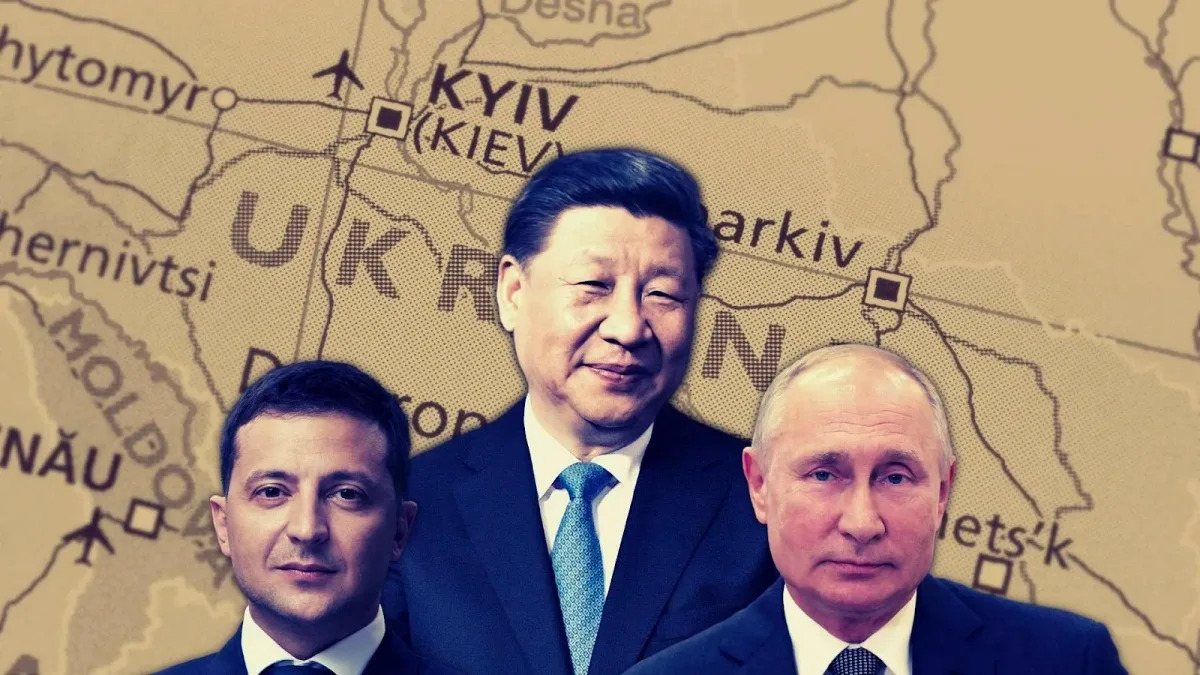In an interview with the website of the Strategic Council on Foreign Relations, Afifeh Abedi, referring to the presentation of a plan by China to create peace between Russia and Ukraine, noted: that China’s plan to end the war in Ukraine should be analyzed from two perspectives. Regarding the content, this plan is more like a political statement and does not offer a unique formula for peace. Regarding the context and conditions of presenting the program, the noteworthy point is the coincidence of that proposal with the Western propaganda war against China’s participation in the Ukraine war. Even in the meantime, its symmetry with the first anniversary of Russia’s attack on Ukraine is insignificant.
While explaining the contents of the peace plan presented by China, she continued: In its 12-point statement, China has tried to mention things such as respecting the sovereignty of all countries, ending unilateral sanctions, resuming peace talks, and continuing the supply chain of goods and cereals, guaranteeing the safety of nuclear power plants, express some considerations of both sides, Russia and Ukraine.
At the same time, the researcher of the Research Institute of the Expediency Council said: But the fact is that this text is a statement and does not have a plan based on an effective formula that opens a passage for peace. It should be kept in mind that to solve any crisis, especially at the level of the Ukraine war, a specific mechanism must be provided to exchange concessions between the two sides of the problem. However, China’s statement lacks a particular proposal for this purpose and only calls for the start of peace talks.
Emphasizing that to discover China’s real motivations and targets for presenting a peace statement in Ukraine, China’s interests must be analyzed, Abedi explained: The war in Ukraine has provided opportunities and benefits for Beijing from various dimensions. By involving Washington in Eastern Europe, the war in Ukraine has reduced the US focus on East Asia. Although the US has made some moves regarding Taiwan in the meantime, it has taken precautions regarding the escalation of tension with China.
Recalling that the war in Ukraine has challenged the power of the US in other political-security fields, she added: After the war in Ukraine, the literature of changing the world order and turning China into a new superpower has been strengthened. However, China has dealt with such comments with patience and caution. On the other hand, the increase in economic sanctions against Russia has reduced Moscow’s bargaining power against Beijing on various issues.
This Russian affairs analyst stated that in this statement, China has warned against the politicization of the world economy and its use as a weapon, noting: During the Ukraine war, China bought cheap energy from Russia and increased its energy reserves and not only become an energy exporter for the first time but also has more bargaining power against other energy exporters to China. At the same time as the United States and Russia are involved in the Ukraine war, China has further developed its political and economic relations with other wealthy players, such as the countries on the southern shores of the Persian Gulf.
Emphasizing that Russia’s behavior against the threat of NATO expansion has been a deterrent from the beginning, the researcher of the Research Institute of the Expediency Council said: Russia is now more willing to end the war at the negotiating table; for this reason, the authorities of that country welcomed Beijing’s peace plan despite not providing a unique mechanism for the exchange of concessions.
While referring to the positions of the American officials regarding the Chinese plan, especially Joe Biden’s opposition to the program, which he had evaluated in the interest of Russia, Abedi stated: Washington lacks the necessary international credibility to play the role of a mediator in the war between Russia and Ukraine. This country, with different motivations and targets, does not want to end the war in Ukraine. This country wants the Ukraine war to become a dilemma for Russia and other players who oppose or criticize the US. Still, at the same time, this war does not become an opportunity to increase China’s power.
She continued, accusing China of supporting Russia in the Ukraine war is also done with the same idea. However, Beijing still refuses to give a direct answer, enters into a verbal challenge, and becomes defensive against the United States. China’s peace statement for the war in Ukraine should be analyzed in this regard.
Referring to the statements of Ukrainian officials who did not call the peace plan proposed by China for the Russia-Ukraine war a “peace plan” and evaluated it only as a plan to stop the war, the expert on Russia affairs emphasized: As long as Washington does not have the will to end the war in Ukraine, an end to the war is unlikely, even if there is a dramatic change in Kyiv. Next year, Ukraine will witness the holding of presidential elections, and even if a way to resolve the differences is created by the current president or the future president of the country, it depends on the agreement of the United States with it.










0 Comments